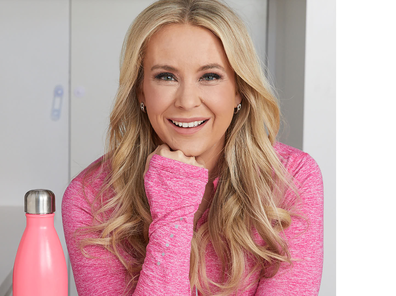There are a lot of different types of diets out there, and there are a lot of ‘experts’ selling diets or diet books that claim to have the one formula for weight loss.
Then we have the fad diets that make the rounds for a couple of years at a time: paleo, keto, 800, and the lemon detox, to name a few that are probably familiar to you.
The reality is that most, if not all, diets will work when followed, but the problem is that few, if any, can be followed long-term.
So, if you’re not sure if the way you’re eating is doing its job, here are some of the signs that the diet you’re following may be doing more harm than good.
READ MORE: What Dog Owners Always Suspect Has Finally Been Proven
You constantly feel deprived
While a diet is simply an eating pattern, today a ‘diet’ has come to mean restriction, with a list of foods to avoid and indulgences to avoid in pursuit of dietary superiority.
One of the problems with deprivation is that, over time, it tends to fuel obsession and, in the case of food, an obsession with all the foods we’re not supposed to eat.
For this reason, one of the telltale signs of a diet destined for failure is one in which you feel like you can’t include the foods you enjoy in reasonable amounts. This means that if you can’t eat cheese, chocolate, dessert, or enjoy an occasional glass of wine without it derailing your diet, it’s unlikely to be the best option for you long-term.
It takes hours of shopping, cooking and preparation.
Life is busy. There are jobs, kids, family responsibilities, sports, dating… so let’s be honest, a diet that requires hours of shopping, cooking, meal prep and is full of expensive ingredients that break the family budget may be doable for a week. or two, but they are unlikely to be sustainable.
A healthy diet doesn’t need to require hours of meal preparation or overly special foods. Rather, cost-effective, quick and easy meals using some pre-made foods and meals can easily be part of a healthy, sustainable, calorie-controlled diet plan.
READ MORE: Three ex-baristas taste three coffees of different prices

Your body is not working well.
You may feel clogged; or you find yourself getting sick more often. Or you may have dry skin, or your periods may even have stopped. Or you may not be able to remember the last time you felt hungry.
The human body is very sensitive to changes in your usual dietary intake, and slow digestion and accompanying constipation are one of the first signs that your body may not be getting the calories and dietary fiber that it needs. it needs to function optimally.
As your calorie and fat intake is reduced, your hormones can be affected, which in turn can affect your mood and menstrual cycle. Over time, as your intake of whole foods and key nutrients is reduced, your body’s ability to fight infection is also reduced. If you don’t feel good about your body, it’s likely that the diet you’re following isn’t helping you feel and perform at your best.

You feel tired and lethargic.
Overly strict regimens that eliminate basic food or nutrient groups can result in relatively rapid weight loss, but over time can negatively affect nutrient intake, which can make you feel tired, lethargic and negatively impact your health. your mood.
Nutrients, including carbohydrates, iron, vitamin D, and calcium, are depleted over time in the body, meaning it may take several weeks or even months before you begin to notice the physical symptoms associated with a dietary intake restrictive.
If you start waking up and feel like you haven’t slept, aren’t recovering from your regular training sessions, or are getting sick a little more often, it may be time to take a closer look at the foods and nutrients you eat. can consume. lacking.
not sustainable
If you’re following a diet where you’re “on” or “off,” it’s probably not the right diet for you. Strict regimens that require you to weigh and measure foods, only eat specific combinations of foods, or count calories or carbohydrates so precisely that you literally cannot eat anything outside of your meal plan are setting you up for a diet cycle. from which it is difficult to escape. .
The best diet we can follow is the one that fits into our lives and includes social events, eating out, and special gifts. Weight loss may be slower on such a diet, but it will be sustainable.
Author susie burrell is a prominent Australian dietitian and nutritionist, founder of shape meco-host of The Nutrition Couch podcast and prominent media spokesperson, with regular appearances in print and television commenting on all areas of diet, weight loss and nutrition.
For a daily dose of 9Honey, Subscribe to our newsletter here.
Lose weight, live longer: 10 unexpected benefits of the Mediterranean diet
